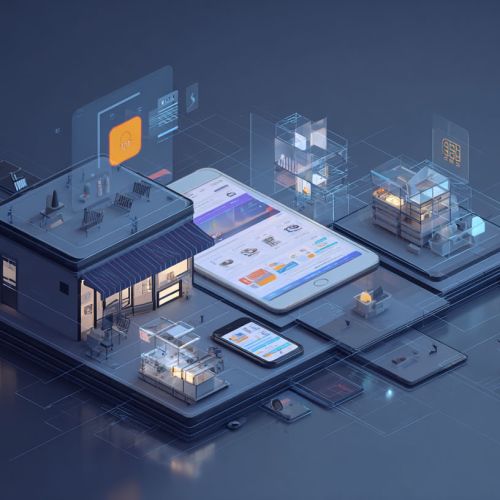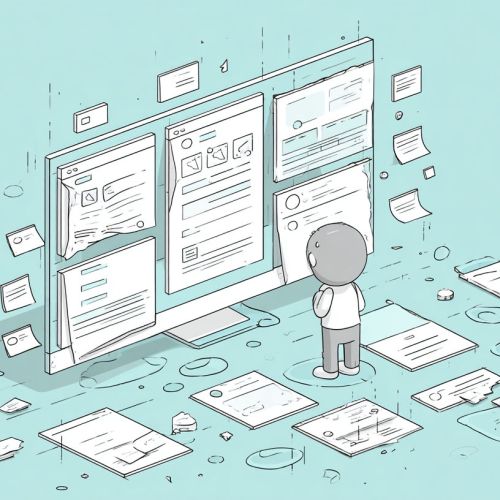Will Gen Z Abolish Themselves in the Work Environment?
Generation Z, commonly known as Gen Z, refers to individuals born between the mid-1990s and the early 2010s. This generation, having grown up in an era of rapid technological advancements, social media proliferation, and significant global events, exhibits unique characteristics and values that distinguish them from previous generations. As they increasingly enter the workforce, a growing debate exists about how their distinctive traits will influence workplace dynamics. This article explores the premise that Gen Z, whom I refer to as “the lost generation,” may face challenges that could lead to their self-abolishment in the traditional work environment.
Understanding Gen Z
To comprehend why this generation might struggle in conventional work settings, it is essential to first understand their defining characteristics:
- Digital Natives: It is the first generation to grow up with the internet and smartphones from a young age. Their comfort with technology surpasses that of previous generations, making them adept at navigating digital platforms and leveraging social media for personal and professional purposes.
- Socially Conscious: This generation is highly aware of social, environmental, and political issues. They prioritize values such as diversity, inclusion, sustainability, and social justice, often expecting the organizations they work for to align with these principles.
- Desire for Work-Life Balance: Unlike previous generations who might prioritize job security and career advancement, Gen Z places a high value on work-life balance. They seek flexible working arrangements and are more likely to prioritize their well-being over traditional career milestones.
- Entrepreneurial Spirit: Many Gen Z individuals aspire to be entrepreneurs or freelancers. They value autonomy and creative freedom, often viewing traditional corporate structures as restrictive.
- Mental Health Awareness: Gen Z is more open about discussing mental health issues and seeking support. They expect employers to provide a supportive and understanding work environment that prioritizes mental well-being.
Challenges in the Work Environment
Despite these positive traits, Gen Z faces several challenges that could lead to their self-abolishment in traditional work settings:
- Mismatch of Expectations: Gen Z’s expectations regarding work culture and values may not always align with those of established organizations. This mismatch can lead to dissatisfaction, disengagement, and high turnover rates.
- Impatience and Unrealistic Expectations: Growing up in a digital world where instant gratification is the norm, Gen Z may struggle with the slow pace of career advancement and the necessity of building experience over time. This impatience can result in frustration and job-hopping.
- Mental Health Struggles: While openness about mental health is commendable, the high prevalence of anxiety, depression, and burnout among Gen Z can affect their productivity and career longevity. Workplaces that fail to address these issues may see increased absenteeism and decreased performance.
- Resistance to Traditional Hierarchies: Gen Z’s preference for flat organizational structures and collaborative environments can clash with traditional hierarchical workplaces. This resistance can create tension and hinder their ability to integrate and succeed in such settings.
- Overemphasis on Purpose: While it is positive that Gen Z seeks meaningful work, an overemphasis on purpose can lead to disillusionment if job roles do not meet their high expectations. This can result in job dissatisfaction and a sense of being “lost” in their career paths.
The Path to Self-Abolishment
Given these challenges, there is a concern that Gen Z might inadvertently set themselves up for failure in traditional work environments. Here are a few ways this self-abolishment could manifest:
- Frequent Job Changes: High turnover rates can hinder Gen Z’s ability to build long-term relationships, accumulate institutional knowledge, and progress in their careers. Constant job-hopping might leave them without a stable professional identity or career path.
- Entrepreneurial Burnout: While the entrepreneurial spirit is admirable, not all ventures succeed. The pressure to innovate and the challenges of starting and sustaining a business can lead to burnout and financial instability.
- Alienation in Traditional Roles: In workplaces that do not align with their values, Gen Z employees may feel alienated and unfulfilled. This alienation can result in disengagement and poor performance, further reinforcing negative stereotypes about their work ethic.
- Mental Health Crises: The combination of high expectations, societal pressures, and workplace stress can exacerbate mental health issues. Without adequate support systems, this can lead to severe consequences, including career derailment.
Solutions for Integration
To prevent the potential self-abolishment of members of this generation in the workplace, both organizations and Gen Z individuals need to take proactive steps:
- Organizational Adaptation: Companies must evolve to meet the needs and expectations of Gen Z. This includes offering flexible work arrangements, promoting a healthy work-life balance, and creating a supportive environment for mental health. Additionally, organizations should strive to align their values with those of Gen Z, focusing on sustainability, diversity, and social responsibility.
- Realistic Expectations: Gen Z needs to temper their expectations with the realities of the workplace. Understanding that career advancement takes time and effort can help mitigate impatience and frustration. Mentorship programs can provide guidance and help manage expectations.
- Mental Health Support: Employers should prioritize mental health by providing resources, creating an open dialogue, and reducing the stigma associated with seeking help. Gen Z employees should also be encouraged to take responsibility for their mental well-being, utilizing available support systems.
- Skill Development: Both organizations and individuals belonging to this generation should focus on continuous skill development. This includes not only technical skills but also soft skills such as communication, collaboration, and adaptability. Investing in lifelong learning can help Gen Z navigate the evolving job market.
- Purposeful Work: Employers can create roles that offer a sense of purpose by clearly communicating the impact of the work and providing opportunities for meaningful contributions. Gen Z should also seek to find purpose within their roles, even if it is not immediately apparent.
Conclusion
Gen Z, the so-called “lost generation,” faces a unique set of challenges as they navigate the modern workplace. Their values, expectations, and mental health needs set them apart from previous generations, creating both opportunities and obstacles. While there is a risk of self-abolishment, proactive efforts from both employers and Gen Z individuals can pave the way for successful integration and fulfillment in their careers. By bridging the gap between expectations and reality, fostering a supportive work environment, and emphasizing continuous growth, Gen Z can avoid becoming the lost generation and instead become a transformative force in the world of work.






